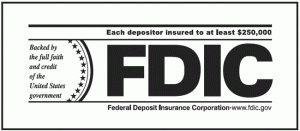Protect Yourself Against Phishing
Phishing usually comes in the form of fraudulent emails that appear to come from legitimate sources.
These ask customers to verify personal information or link to counterfeit Web sites that appear real.
Watch for emails that:
Urge you to act quickly because your account may be suspended or closed, or to update your personal information.
Don’t address you by name, but use a more generic one like “Dear valued customer.”
Ask for account numbers, passwords, Access IDs, or other personal information.
The Bank will NEVER ask for sensitive information, such as account information, Access IDs or passwords, via e-mail.
TIPS for safeguarding your information from the American Bankers Association:
- Don’t give your Social Security number or other personal credit information about yourself to anyone who calls you.
- Tear up receipts, bank statements and unused credit card offers before throwing them away.
- Keep an eye out for any missing mail.
- Don’t mail bills from your own mailbox with the flag up.
- Review your monthly accounts regularly for any unauthorized charges.
- Order copies of your credit report once a year to ensure accuracy.
- Do business with companies you know are reputable, particularly online.
- Don’t open email from unknown sources and use virus detection software.
- Protect your PINs (don’t carry them in your wallet!) and passwords; use a combination of letters and numbers for your passwords and change them periodically.
- Report any suspected fraud to your bank and the fraud units of the three credit reporting agencies immediately.
- TransUnion: (800) 916-8800
- Experian: (800) 301-7195
- Equifax: (800) 525-6285
If you become a victim, contact:
- The fraud departments of the three major credit bureaus
- The creditors of any accounts that have been misused
- The local police to file a report.
- The bank to cancel existing accounts held in your name and re-open new accounts with new accounts with new passwords.
The Bank is committed to safeguarding our customers’ financial information. Maintaining our customers’ trust and confidence is a top priority. To learn more about how we protect your information, please ask for a copy of our privacy policy or click on the link in our website.


